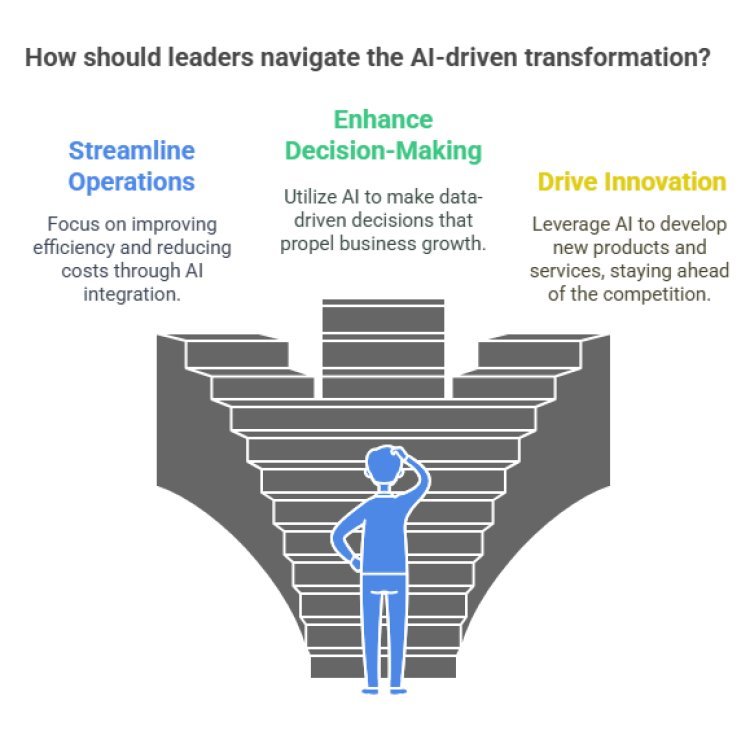Leadership with Artificial Intelligence: Navigating Market Demand in the AI Era

How should leaders navigate the AI driven transformation?
Dr. Ipseeta Nanda
Professor, School of Engineering
IILM University, Greater Noida, UP, India
In an era where Artificial Intelligence (AI) is transforming industries at an unprecedented pace, the role of leadership is evolving just as rapidly. Businesses across the globe are leveraging AI to streamline operations, enhance decision-making, and drive innovation. However, the increasing demand for AI solutions is creating both opportunities and challenges for leaders navigating this technological revolution.
AI Market Growth and Demand
The AI market is experiencing exponential growth, with recent reports projecting its value to surpass $1.5 trillion by 2030. From automation in manufacturing to predictive analytics in healthcare, AI is becoming an indispensable tool for businesses. Companies are investing heavily in AI-powered technologies, including machine learning, natural language processing, and robotics, to stay ahead of the competition. The demand for AI leadership is rising as businesses seek executives who can bridge the gap between technology and strategic vision. According to a World Economic Forum report, AI-related leadership roles have seen a 35% increase in hiring trends, emphasizing the need for skilled professionals who can integrate AI-driven solutions into their corporate strategies.
The Role of Leadership in AI Adoption
AI is not just about technology; it’s about people. Effective AI-driven leadership requires a combination of technical knowledge, ethical responsibility, and strategic thinking. Leaders must foster a culture of innovation while addressing key concerns such as data privacy, algorithmic bias, and workforce transformation.
- Ethical AI Implementation
AI-powered decision-making is only as good as the data it relies on. Leaders must ensure transparency, fairness, and accountability in AI models to prevent biased or unethical outcomes. Companies like Google and Microsoft have introduced AI ethics committees to oversee responsible AI deployment.
- Upskilling and Workforce Transformation
With automation reshaping job roles, leaders must invest in reskilling and upskilling programs to equip employees with AI-related skills. The rise of AI does not eliminate jobs; instead, it redefines them, creating opportunities in AI development, data science, and human-AI collaboration.
- AI-Driven Decision Making
AI is revolutionizing leadership by offering data-driven insights that enable faster and more informed decision-making. From predictive analytics in healthcare to AI-powered financial forecasting, leaders who embrace AI-driven strategies gain a significant competitive advantage.
The Future of AI Leadership
As AI continues to evolve, so too must leadership approaches. The most successful leaders will be those who can adapt to AI-powered business models, cultivate cross-disciplinary expertise, and maintain a human-centric approach to technology. With the market demand for AI soaring, businesses that integrate AI-driven leadership strategies will be best positioned for long-term success.
Conclusion
The future of leadership lies in harnessing the potential of AI while maintaining ethical integrity and human oversight. As the market demand for AI accelerates, leaders who can seamlessly merge technological innovation with visionary leadership will shape the industries of tomorrow.

















